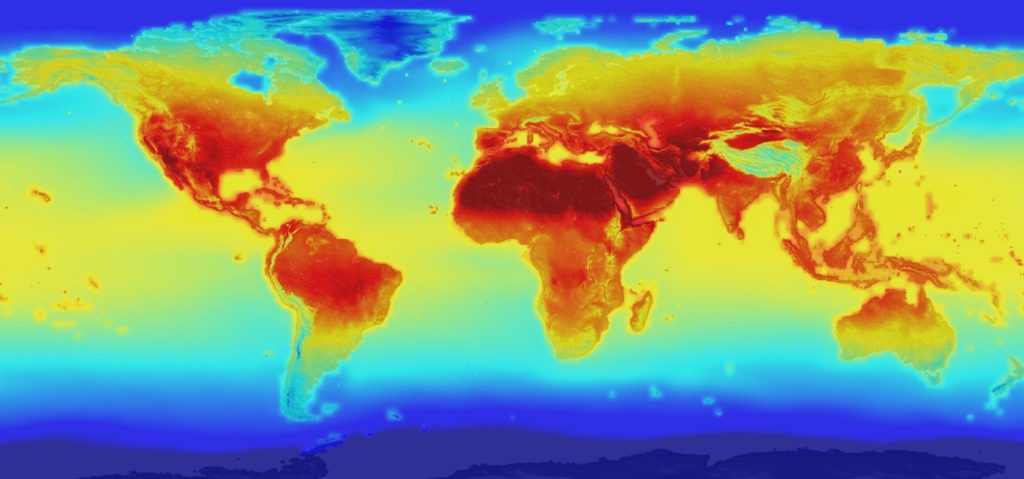
MOST of us are aware that climate change poses an existential threat to India. The special report – Global Warming of 1.50 C, released by the Inter Government Panel on Climate Change (IPCC) in October last year said that the current level of Greenhouse gas emissions set the world on a trajectory of global warming of more than 1.5 degree Celsius, the results of which could be catastrophic.
Unfortunately, none of our political parties have thought it fit to include climate change in their election manifesto or in their campaign speeches in ongoing general elections.
“The impact of climate change poses one of the greatest existential threats to resource-dependent communities in India – vulnerable populations could face increased intensity and frequency of extreme precipitation events – heat waves, coastal flooding, vector-borne diseases and dip in crop productivity. It’s incumbent upon all political parties in India to address the question of climatic change heads on. Not just our villages but also our cities, which are the engines of economic growth, are resilient to climate impacts. Sadly, none of the election manifestos of the major political parties has outlined a comprehensive strategy to address climate impacts. IPCC Special Report on 1.5 degrees C should have found a mention in Election Manifestos – but it does not.” says Vikrom Mathur, Director of Tandem Research an interdisciplinary research collective that generates policy insights at the interface of technology, society, and sustainability
The only statement made by the government when the report was released in October last year was made by then Environment minister, Harsh Vardhan, “We have not been waiting for a report to take action against climate change. We are already putting all our efforts to ensure that the global temperature does not further increase.” Yet, there has been no mention of combating global warming in BJP’s manifesto for the current Lok Sabha elections.
Urgent action needed
The IPCC report stressed on the need for urgent action to ease pressure on the Arctic Circle. This has been the most ambitious part of the Paris agreement. India is a signatory to the Paris agreement which was ratified on October 2, 2016 and brought into force on November 4, 2016. India’s emissions of greenhouse gases at 4.10% are the third highest only after China and USA.
The seriousness of this approaching environmental crises is evidenced by the fact that there has been a rise in global temperatures by 1 degree Celsius since the pre-industrial levels, this rise in temperature has led to hurricanes, droughts, forest fires and other natural disasters.
Research has established, without a doubt that even half a degree rise could have major impacts on the environment. If the temperature rise is curtailed at 1.5 degree instead of 2 degree, it would limit the impact on millions of people especially in a developing country like India. The risk of climate related poverty and food scarcity could be contained and stress on water systems could be reduced by 50%.
Threat to our coasts
The region that will be worse hit by the rise in global temperature in India would be the coasts. In comparison to 1970, the rise in temperature by 2030 is expected to go up by 1.7 – 2.2 degree Celsius. India is said to be among the most vulnerable of the countries to be affected by this rise in global temperatures. Some of the major impacts of the 2 degree temperature rise instead of 1.5 degree rise in India are –
- Flooding and tropical cyclones of category 4 and 5 near the regions which are right near the North Indian Ocean around the Arabian Sea.
- The number of hot days will increase and it will be especially hard for cities like Kolkata which can experience an intense heat wave.
- There will be a threat to the Coastal Ecosystem and consequently risk of coastal communities getting displaced.
- Communities which are settled around Ganga-Brahmaputra delta can face threat of displacement. This will also have a substantial impact on the economic growth.
- There will be an increase in vector borne diseases like malaria and dengue.
- There will be a 50 percent rate of increase in extinction rates of plants, vertebrates and insects.
- The availability of food will decrease as there will be lower production in crops of maize, rice, wheat etc. It will also negatively impact rice and wheat quality.
- There will be negative changes that will be experienced in livestock.
The surprising thing in this is that it has not even been six months, but the report has been completely forgotten by political parties. The callousness by which this major environmental hazard is being looked at can be seen by how much attention environment and nature find in the speeches of political leaders and their manifestos.
Congress’s manifesto for the 2019 Lok Sabha elections mentions that ‘an action agenda that will place India at the forefront on the battle against global warming and the protection of the environment.’ The CPI(M) manifesto finds no mention of climate change whatsoever. The Bhartiya Janta Party(BJP) manifesto finds the word climate precisely once at ‘India has become a global champion in addressing the issues of climate change through effective and feasible interventions’.
It’s no wonder that India is placed at 177 out of 180 countries in the 2018 Global Environment performance index.
Article Credit: The Leaflet
